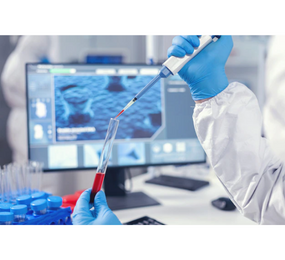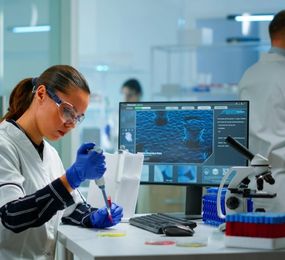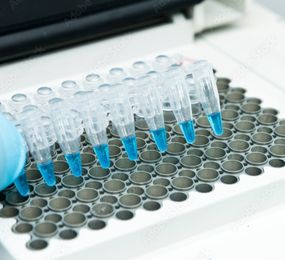Biomanufacturing traditionally relies on microbial or mammalian cell cultures. However, a new frontier is emerging – biomanufacturing with plant-based platforms. This approach harnesses the power of plants to produce valuable bioproducts, offering exciting possibilities alongside some unique challenges.
Advantages of Plant-Based Biomanufacturing:
-
Safety: Plants are naturally less susceptible to harboring human pathogens compared to mammalian cell cultures, reducing safety risks.
-
Scalability: Plants can be easily grown at large scale in greenhouses or fields, offering a potentially cost-effective way to scale up production.
-
Cost-Effectiveness: Utilizing existing agricultural infrastructure and expertise can potentially lower production costs compared to complex mammalian cell cultures.
-
Proper Protein Folding: Plants can often correctly fold complex proteins, eliminating the need for additional processing steps required with some microbial systems.
A Spectrum of Bioproducts:
Plant-based platforms hold promise for producing a diverse range of bioproducts, including:
-
Recombinant Proteins: Plants can be engineered to produce therapeutic proteins like enzymes and antibodies for medical applications.
-
Vaccines: Plant-based vaccines offer a safe and potentially thermostable alternative to traditional vaccines, making them ideal for regions with limited refrigeration capabilities.
-
Bioplastics: Plants can be used to produce biodegradable bioplastics, offering a sustainable alternative to petroleum-derived plastics.
Limitations and Challenges:
Despite the advantages, there are limitations to consider:
-
Lower Yields: Plant-based platforms often produce lower yields compared to mammalian cell cultures, requiring further optimization.
-
Regulatory Landscape: Regulations for plant-derived bioproducts are still evolving, adding an extra hurdle for commercialization.
-
Public Perception: Consumer acceptance of plant-based bioproducts may require education and outreach efforts.
The Road Ahead:
Researchers are actively addressing these challenges through:
-
Genetic Engineering: Advanced techniques are improving the efficiency of protein production in plants.
-
Downstream Processing: Optimizing purification techniques is crucial for obtaining high-purity bioproducts from plant extracts.
-
Public Engagement: Promoting transparency and education can address concerns and encourage public acceptance.
Biomanufacturing with plant-based platforms presents a promising avenue for safe, scalable, and potentially cost-effective bioproduction. By addressing current limitations and fostering innovation, this approach could revolutionize the way we manufacture essential bioproducts, paving the way for a more sustainable and healthy future.
To register or learn more about the Forum please check here: https://bit.ly/3WRMLFS.
For more information and group participation, contact us: [email protected]
















